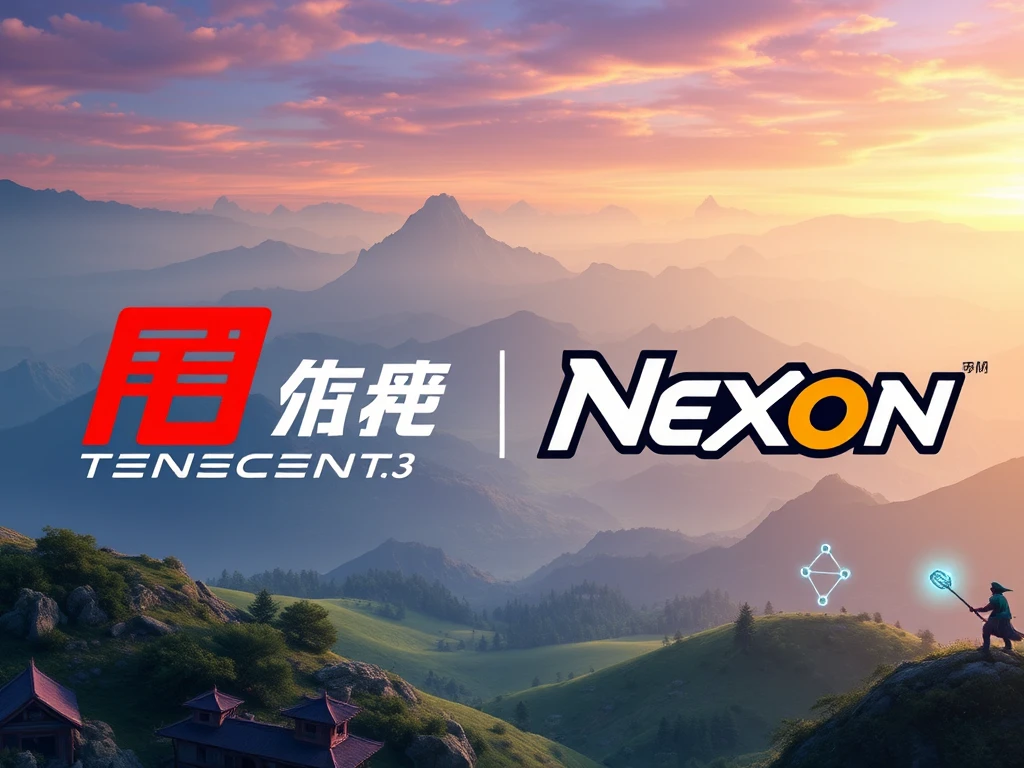Tencent’s Massive Acquisition Play: Nexon, MapleStory, and the Web3 Gaming Future

The world of gaming and technology is buzzing with significant news. Reports indicate that Chinese tech giant Tencent is exploring a potential acquisition of South Korean game developer Nexon. While talks are preliminary and a deal is not guaranteed, this development has significant implications, particularly for the burgeoning sector of Web3 gaming.
Exploring the Tencent and Nexon Acquisition Talks
Sources suggest that representatives from Tencent have approached the family of Nexon founder Kim Jung-ju to discuss a potential deal. Tencent is a global technology and holding company with vast interests, including a significant presence in the gaming industry through investments and ownership of studios like Riot Games (League of Legends) and Epic Games (Fortnite stake). Nexon, on the other hand, is renowned for its massively multiplayer online role-playing games (MMORPGs), most notably the long-running and highly popular MapleStory series.
Why might Tencent be interested in Nexon? Beyond Nexon’s established portfolio and revenue streams, renewed interest in the MapleStory series, particularly its recent integration of blockchain technology, could be a key factor. An acquisition by Tencent could significantly accelerate Nexon’s Web3 initiatives and expand Tencent’s footprint in the blockchain gaming space.
MapleStory’s Dive into Web3 Gaming
Nexon has already taken concrete steps into Web3 gaming by integrating blockchain technology into two planned installments of the MapleStory series: MapleStory N and MapleStory Universe. Announced for a potential launch around May 2025, these versions aim to leverage blockchain to allow players to own in-game assets as non-fungible tokens (NFTs). This move aligns with the core promise of Web3 gaming – giving players true ownership over digital items, potentially creating new economic opportunities within virtual worlds.
The integration of NFTs in MapleStory allows users to collect items and rewards that exist on a blockchain, meaning they can potentially be traded, sold, or even used outside the specific game environment, depending on the design. This shift from traditional in-game items, which are typically confined to a game’s ecosystem and controlled by the publisher, represents a fundamental change in the player-game relationship.
The Broader Landscape of Web3 Gaming
The potential Tencent acquisition talks come at a time of fluctuating but growing interest in Web3 gaming. A report from DappRadar in February 2025 indicated a significant surge in blockchain gaming activity year-over-year in January 2025. This growth was partly attributed to titles like Off The Grid, a AAA shooter aiming for console-level graphics and gameplay, and the anticipation surrounding games like MapleStory N.
The emergence of higher-quality games like Off The Grid and the planned Web3 integrations in MapleStory signal a shift in the market. Early Web3 games often prioritized tokenomics and player rewards over robust gameplay and graphics. Newer titles aim to deliver compelling gaming experiences first, with blockchain elements enhancing, rather than defining, the core gameplay loop.
However, the sector still faces challenges. Despite initial spikes, DappRadar noted a subsequent decline in daily unique active wallets in the months following January 2025. Headwinds include the technical barrier for mainstream players to set up and manage blockchain wallets and the existing gaming community’s skepticism towards play-to-earn mechanics and the financialization of games.
Challenges and Opportunities
The path forward for Web3 gaming is not without obstacles. Key challenges include:
- Technical Complexity: Onboarding new users who are unfamiliar with blockchain wallets and concepts remains a significant hurdle.
- Community Perception: Many traditional gamers are wary of NFTs and play-to-earn models, sometimes viewing them as exploitative or detrimental to gameplay.
- Market Volatility: The value of in-game assets tied to cryptocurrencies or NFTs can be volatile, impacting the in-game economy.
Despite these challenges, the opportunities presented by Web3 gaming are substantial:
- Player Ownership: Granting players true ownership of digital assets can foster stronger communities and create new forms of engagement.
- New Asset Class: In-game assets becoming tradeable, valuable digital property could unlock significant economic potential.
- Innovative Game Design: Blockchain can enable novel gameplay mechanics, community governance, and interoperability between games.
Conclusion: What Could a Tencent-Nexon Deal Mean for Web3?
While the potential acquisition of Nexon by Tencent is far from finalized, the fact that a tech giant like Tencent is exploring such a move, especially given Nexon’s recent focus on Web3 gaming with MapleStory, underscores the growing strategic importance of blockchain in the gaming industry. A successful acquisition could inject significant resources and expertise into Nexon’s Web3 initiatives, potentially accelerating the development and adoption of blockchain-enabled games on a global scale. It signals that major players are watching, and potentially ready to invest heavily in, the future where gaming and decentralized technologies converge.









